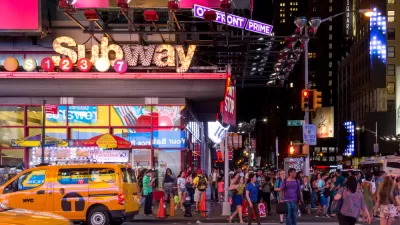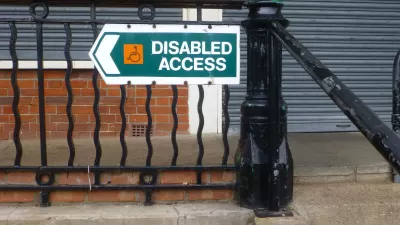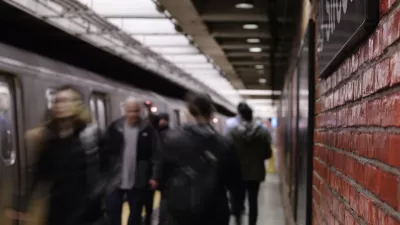It's been remarked upon before. Infrastructure in New York City is a cost nightmare compared to other global cities. Accountability is lacking, Josh Barro writes, but MTA also suffers from an "institutional lack of power."

Amid the nationwide debate over crumbling infrastructure, Josh Barro writes, "where New York stands out is the massive price tags associated with proposed and actual new projects, and the delays and limitations of vision they impose on new construction." While cities like London and Paris implement "transformative" transportation projects, NYC is paying inflated sums for the "mundane."
Barro goes through some of the many problems driving up costs. It's a lengthy paragraph. "When you're doing everything wrong, the best way to fix the problem isn't usually to go through the list of things you're doing wrong and fix them one by one. It's best to step back and ask why you're so bad at everything, whether a systemic problem is causing you to make so many separate mistakes."
Two root problems afflict MTA, Barro says. The first is a lack of accountability: it's unclear who's in charge, and no one is on hand to take blame. "Less discussed than the accountability problem is the MTA's institutional lack of power. When the MTA wants to build a big new shiny thing, it's at the mercy of a lot of people and entities it doesn't control."
Tackling the accountability problem will require fixing the power problem, Barro writes. The agency must have "the tools it needs to have even a chance at success, so somebody will be willing to be blamed if it fails." And beyond dealing with MTA's dysfunction, another question New York should be asking is, "At what point is the price too high for a project like this to be worth building?"
FULL STORY: Why New York Can’t Have Nice Things

Study: Maui’s Plan to Convert Vacation Rentals to Long-Term Housing Could Cause Nearly $1 Billion Economic Loss
The plan would reduce visitor accommodation by 25,% resulting in 1,900 jobs lost.

North Texas Transit Leaders Tout Benefits of TOD for Growing Region
At a summit focused on transit-oriented development, policymakers discussed how North Texas’ expanded light rail system can serve as a tool for economic growth.

Using Old Oil and Gas Wells for Green Energy Storage
Penn State researchers have found that repurposing abandoned oil and gas wells for geothermal-assisted compressed-air energy storage can boost efficiency, reduce environmental risks, and support clean energy and job transitions.

Private Donations Propel Early Restoration of Palisades Playground
Los Angeles has secured over $1.3 million in private funding to restore the Pacific Palisades playground months ahead of schedule, creating a modern, accessible space that supports community healing after recent wildfires.

From Blight to Benefit: Early Results From California’s Equitable Cleanup Program
The Equitable Community Revitalization Grant (ECRG) program is reshaping brownfield redevelopment by prioritizing projects in low-income and environmental justice communities, emphasizing equity, transparency, and community benefits.

Planting Relief: Tackling Las Vegas Heat One Tree at a Time
Nevada Plants, a Las Vegas-based nonprofit, is combating the city’s extreme urban heat by giving away trees to residents in underserved neighborhoods, promoting shade, sustainability, and community health.
Urban Design for Planners 1: Software Tools
This six-course series explores essential urban design concepts using open source software and equips planners with the tools they need to participate fully in the urban design process.
Planning for Universal Design
Learn the tools for implementing Universal Design in planning regulations.
Ascent Environmental
Borough of Carlisle
Institute for Housing and Urban Development Studies (IHS)
City of Grandview
Harvard GSD Executive Education
Toledo-Lucas County Plan Commissions
Salt Lake City
NYU Wagner Graduate School of Public Service





























